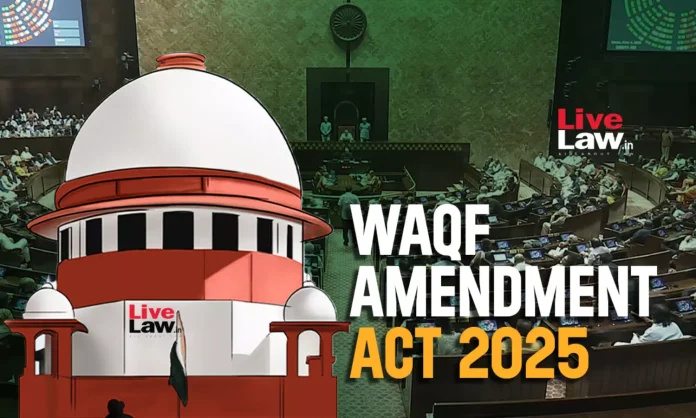New Delhi: The Association for the Protection of Civil Rights (APCR) has filed a writ petition in the Supreme Court challenging the recently enacted Waqf (Amendment) Act, 2025, asserting that it poses a serious threat to the autonomy of Muslim religious institutions and violates constitutional provisions.
Filed before the law received presidential assent on April 5, the petition calls the amendment an “alarming interference” with the religious affairs of Muslims, contradicting Articles 14, 25, 26, and 300A of the Constitution. It emphasizes that Waqf is a religious practice rooted in Islamic tradition and protected under Indian law.
One major concern raised is the renaming of the Act to the “Unified Waqf Management, Empowerment, Efficiency, and Development Act,” which APCR argues is a deceptive move that undermines the term ‘Waqf’—a term rich in cultural, religious, and historical significance. The petition states that such a change reflects a colonial mentality attempting to modernize at the cost of erasing indigenous and Islamic legal traditions.
The petition also highlights the arbitrary inclusion of non-Muslims in Muslim religious administration, a move it says is neither inclusive nor secular, and creates a double standard not imposed on Hindu or other religious institutions.
Further objections include the omission of Section 3(r), which recognized Waqf by user—a principle affirmed in the Ayodhya verdict. This omission, APCR warns, endangers Waqf properties historically used for religious and charitable purposes and may lead to large-scale litigation and property disputes.
The petition concludes that the amendment risks communal unrest, infringes on religious freedom, and weakens the waqf structure. It calls for the law to be struck down in the interest of justice and constitutional integrity.
The petition has been filed by advocates Adeel Ahmad, Atul Yadav, M. Huzaifa, Mohammad Mobashshir Aneeq, and Taqdees Fatima.




